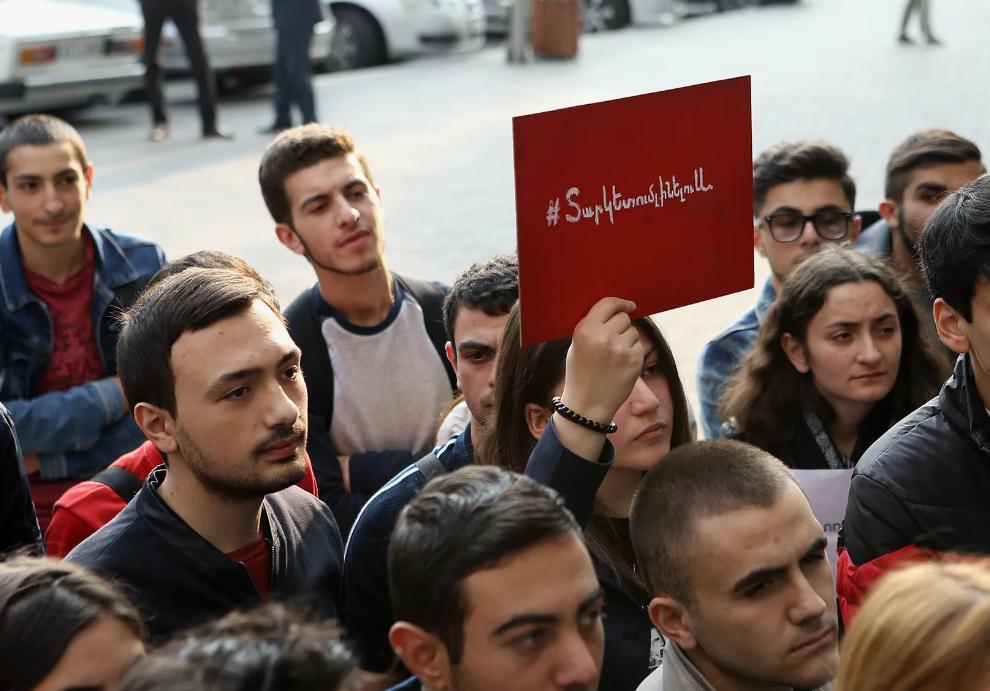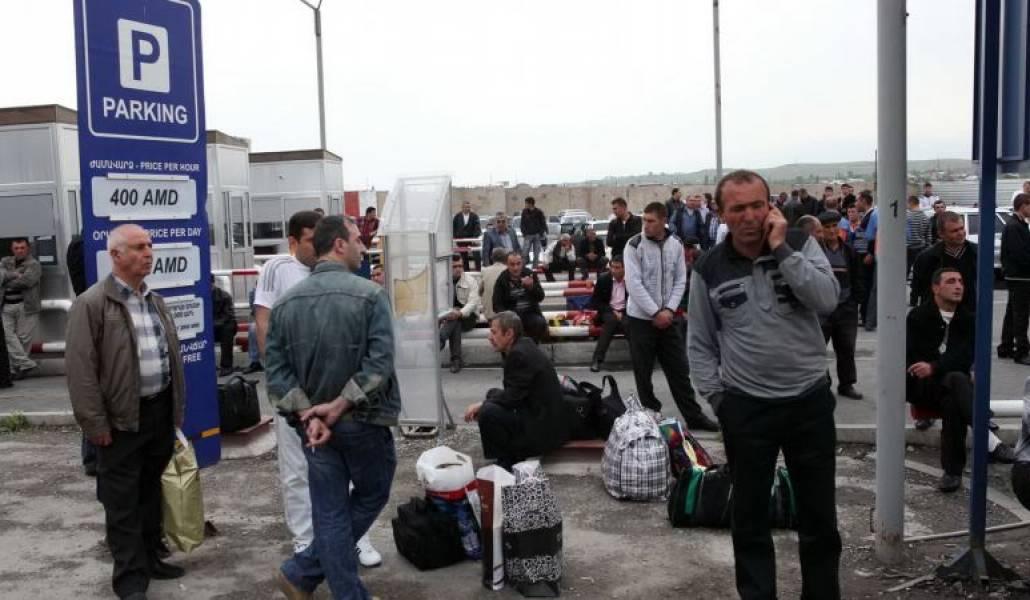Brussels' bait and Yerevan's rush to swallow it The visa-free temptation
Armenian Prime Minister Nikol Pashinyan and his team finally have a reason for some joy. The Council of the European Union has welcomed the European Commission's intention to start discussions with Armenia on visa liberalization. It’s no surprise that Armenian Foreign Minister Ararat Mirzoyan has been incessantly thanking the European Commission. One might even wonder if he endured the beating on November 10, 2020, because he anticipated Armenia receiving visa-free travel.
However, there’s a catch. "The possibility to lift the visa obligations for Armenian citizens will only be considered upon the complete fulfilment of the benchmarks," the EU Council’s message emphasizes. In other words, there’s a vast distance between the promises to begin considering this issue and the actual implementation that Pashinyan and his team are already touting. But the authorities of the smallest country in the South Caucasus are eager to sell some tangible results of their efforts to the public!
Judge for yourself. Nikol Pashinyan initiated and lost the war with Azerbaijan, bringing curses from thousands of Armenian parents who lost their children on foreign soil due to his and his predecessors' gamble. He was then publicly forced to acknowledge Azerbaijan's territorial integrity, including the Karabakh region and its enclaves, and to return four Armenian villages to Azerbaijan. This has fueled growing dissatisfaction with Pashinyan and his team. The only reason Armenia has not seen a change in leadership is that the opposition consists of highly controversial figures—Robert Kocharyan, Serzh Sargsyan, and the comical Bagrat (Galstyan). Consequently, the Dashnaks and the Karabakh clan have promoted a clownish archbishop as the face of the resistance against the current government. Surprisingly, he gave a rather candid speech, saying, "What will visa liberalization give Armenia? Nothing, just fewer lines at embassies." He also accurately noted that it will likely be the current government’s supporters who are first to leave the country to benefit from the "visa-free" opportunity.

Galstyan rightly predicts that Armenia is heading towards even deeper demographic problems. A comparable example is Georgia, where migration reached a record level in 2023—163,500 people—with a migration balance of minus 71,500. This accounts for almost 2 per cent of Georgia’s population. Among the new migration destinations for Georgians is Poland. According to the Polish Social Insurance Institution, the number of Georgian migrants, which was under 500 in 2015, exceeded 28,000 last year. Georgians in Poland are mostly employed in manufacturing or construction.
Armenian citizens are likely to find similar opportunities in Poland or other EU countries. There is nothing wrong with this; however, Armenia itself will become even more depopulated. At this rate, the country may soon have fewer than 1.5 million permanent residents. What does this mean for Armenia's economy? It spells tremendous problems. Local producers will struggle to find enough consumers for mass production, leading to a significant reduction in demand.

Returning once again to Bagrat Galstyan's conclusions, he is indeed correct that Armenia has little to say on the international stage. "Armenia is not at the table of any discussions. We do what we are told from all over the world," he remarked. This observation holds true. It explains why the current Armenian government is trying to extract maximum political benefits from a situation where failure follows failure and disgrace follows disgrace. They will never admit to their citizens that the EU's goal is to attract as many working but non-Muslim individuals as possible. Europe has long been afflicted with Islamophobia, but it needs labour.
Consequently, it sees this labour potential in their co-religionists from Ukraine, Georgia, the Baltic States, and possibly Armenia. The EU would gladly accept Russians and Belarusians as labour migrants, but the current geopolitical situation prevents this. The uniqueness of this situation is that visa-free travel is being offered to an occupying country for the first time, rather than to a victim of occupation. Furthermore, this is a country that has disregarded UN Security Council and General Assembly resolutions, still hosts a Russian military base, and has its borders with Turkey and Iran guarded by Russian border guards.
By the way, to wrap up on how things could have turned out differently, it’s notable that EU Ambassador to Georgia Pawel Herczynski recently stated that, following the adoption of the foreign agent law, the simplified visa regime between Georgia and the EU might be reviewed and potentially suspended. This highlights that the much-discussed "visa-free" access, if granted to Armenia, could be easily revoked if the EU decides to exert pressure on Yerevan. Unsurprisingly, Pashinyan and his team are not disclosing this possibility to their citizens.








